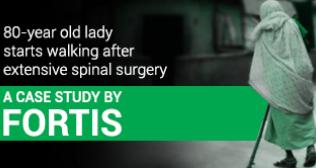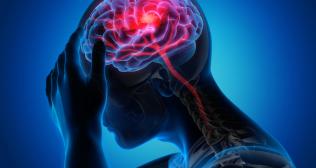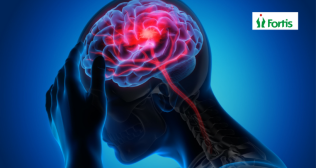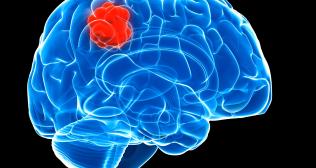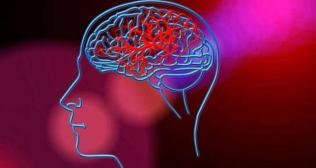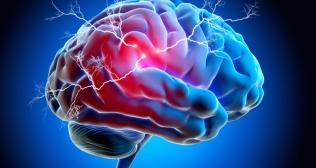Pleomorphic Adenoma: Causes, Symptoms, Surgical Options And Treatment Options Of This Benign Tumour
Pleomorphic adenoma is the most common type of tumor in the salivary glands. Often benign, these tumours growths originate from epithelial cells – lining the body's surface, and myoepithelial cells – the cells that aid in secretion. A majority of Pleomorphic adenomas are benign, which means non-cancerous.
To understand more Pleomorphic adenoma, one should first know the functioning of salivary glands. Divided into parotid, submandibular and sublingual glands, assisted by minor salivary glands including labial and buccal glands, glossopalantine gland, and palatine and lingual glands – salivary glands help in keeping the mouth moist, aid in digestion, and maintain healthy teeth. In many cases, Pleomorphic adenomas develop in the parotid gland in front of the ears. However, a few patients are also diagnosed in the submandibular gland – located under the jawline, and the sublingual gland, under the tongue.
What Are the Types of Non-Cancerous Salivary Gland Tumours?
There are various types of Salivary Gland Tumours. These cancerous growths are classified based on type, development, and location. Understanding the type of salivary gland tumour aids significantly in treating the condition thoroughly.
- Pleomorphic Adenoma
- Basal cell Adenoma
- Canalicular Adenoma
- Oncocytoma
- Warthin Tumour
What Causes Pleomorphic Adenoma?
The primary reasons behind Pleomorphic Adenoma are not clear. It is seen often in people between the age of 30 to 40 and those with a history of radiation therapy to the head and neck region. Females are more prone to Pleomorphic Adenoma, and other triggers might include smoking, excessive intake of alcohol, poor dietary habits, and repeated exposure to carcinogenic materials like asbestos and other chemicals.
What Are the Symptoms of Pleomorphic Adenoma?
See your doctor immediately if you notice a smooth, painless growth of mass by the jawline, growing steadily over time. This painless lump often appears on the back of the jaw and just below the earlobe.
If not treated on time, this mass will enlarge, affecting the facial nerves and making it challenging to move the face. Other significant symptoms include:
- Loss of hearing
- Difficulty chewing and swallowing
- Muscle weakness causing droopiness of the face
- Inability to open the mouth
How is Pleomorphic Adenoma Diagnosed?
The doctor will first physically examine the swollen salivary glands to check if there is any numbness or prickling sensation in the face.
Imaging tests like ultrasounds, Computer Tomography CT-Scans, Magnetic Resonance Imaging (MRI), Nuclear Magnetic Resonance (NMR), and PET-CT to evaluate the growth. Pleomorphic adenomas typically appear as round masses.
The next step would be a biopsy, where sample tissue is collected to examine both epithelial and myoepithelial cells to determine if it is encapsulated in a fibrous capsule. If surrounded by a fibrous capsule, it will be categorized as Pleomorphic Adenoma – either benign or malignant.
How Is Pleomorphic Adenoma Treated?
Total Parotidectomy, a surgical procedure, forms the top line of treatment for curing Pleomorphic adenoma. The surgeon would aim to obliterate the mass without disturbing the anatomical structure and prevent its recurrence. If not entirely removed for the reasons owing to access, location, etc., there is a 5% chance that this benign tumour can turn malignant, which means cancerous. Surgery cures this condition completely, but a residual adenoma can trigger the relapse o parotid tumours. In partial removal, the patient may have to undergo radiation therapy after the surgery to prevent its chances of growing again.
The patient would have to wait till the surgery location heals completely to consume solid, hot foods. The patient would have to keep up with the regular doctor’s appointments and medicine schedule for it to cure completely.
Conclusion:
Pleomorphic adenoma is the most common type of non-cancerous tumours in salivary glands. These cancerous growths happen in both epithelial and myoepithelial cells and, if not treated on time, can lead to significant complications like difficulty in eating, swallowing food, loss of hearing, muscle weakness on the face, and inability to open the mouth to talk. The major causes of Pleomorphic adenoma are unknown. However, people with poor lifestyle choices like smoking and alcohol are at risk. Women are more prone to this condition than men, and it is also diagnosed in people with a history of radiation therapy and exposure to carcinogenic chemicals. Diagnosed with the help of imaging tests, biopsy, and physical examination, Pleomorphic adenoma is treated by a surgical procedure called Total Parotidectomy.
Fortis Healthcare, best hospital in India stands at the forefront of providing comprehensive treatment for pleomorphic adenoma. With a deep understanding of its causes, symptoms, and clinical features, Fortis hospitals offer advanced surgical interventions tailored to each patient's needs. By addressing the etiology and clinical manifestations of pleomorphic adenoma, Fortis Healthcare ensures a holistic approach to diagnosis and treatment, prioritizing patient well-being and recovery.
Popular Searches :
Hospitals: Cancer Hospital in Delhi | Best Heart Hospital in Delhi | Hospital in Amritsar | Hospital in Ludhiana | Hospitals in Mohali | Hospital in Faridabad | Hospitals in Gurgaon | Best Hospital in Jaipur | Hospitals in Greater Noida | Hospitals in Noida | Best Kidney Hospital in Kolkata | Best Hospital in Kolkata | Hospitals in Rajajinagar Bangalore | Hospitals in Richmond Road Bangalore | Hospitals in Nagarbhavi Bangalore | Hospital in Kalyan West | Hospitals in Mulund | Best Hospital in India | | Cardiology Hospital in India | Best Cancer Hospital in India | Best Cardiology Hospital in India | Best Oncology Hospital In India | Best Cancer Hospital in Delhi | Best Liver Transplant Hospital in India
Doctors: Dr. Rana Patir | Dr. Rajesh Benny | Dr. Rahul Bhargava | Dr. Jayant Arora | Dr. Anoop Misra | Dr. Manu Tiwari | Dr. Praveer Agarwal | Dr. Arup Ratan Dutta | Dr. Meenakshi Ahuja | Dr. Anoop Jhurani | Dr. Shivaji Basu | Dr. Subhash Jangid | Dr. Atul Mathur | Dr. Gurinder Bedi | Dr. Monika Wadhawan | Dr. Debasis Datta | Dr. Shrinivas Narayan | Dr. Praveen Gupta | Dr. Nitin Jha | Dr. Raghu Nagaraj | Dr. Ashok Seth | Dr. Sandeep Vaishya | Dr. Atul Mishra | Dr. Z S Meharwal | Dr. Ajay Bhalla | Dr. Atul Kumar Mittal | Dr. Arvind Kumar Khurana | Dr. Narayan Hulse | Dr. Samir Parikh | Dr. Amit Javed | Dr. Narayan Banerjee | Dr. Bimlesh Dhar Pandey | Dr. Arghya Chattopadhyay | Dr. G.R. Vijay Kumar | Dr Ashok Gupta | Dr. Gourdas Choudhuri | Dr. Sushrut Singh | Dr. N.C. Krishnamani | Dr. Atampreet Singh | Dr. Vivek Jawali | Dr. Sanjeev Gulati | Dr. Amite Pankaj Aggarwal | Dr. Ajay Kaul | Dr. Sunita Varma | Dr. Manoj Kumar Goel | Dr. R Muralidharan | Dr. Sushmita Roychowdhury | Dr. T.S. MAHANT | Dr. UDIPTA RAY | Dr. Aparna Jaswal | Dr. Ravul Jindal | Dr. Savyasachi Saxena | Dr. Ajay Kumar Kriplani | Dr. Nitesh Rohatgi | Dr. Anupam Jindal |
Specialties: Heart Lung Transplant | Orthopedic | Cardiology Interventional | Obstetrics & Gynaecology | Onco Radiation | Neurosurgery | Interventional Cardiology | Gastroenterologist in Jaipur | Neuro Physician | Gynecologist in Kolkata | Best Neurologist in India | Liver Transfer |







